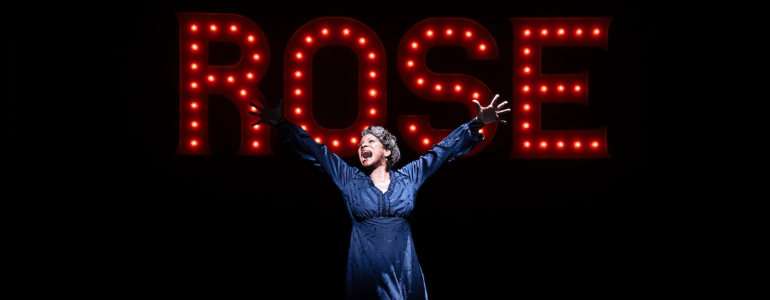On September 23rd, Broadway Investing changes forever.
Everyone in the world of investing, whether that means Broadway investing or Hedge Fund investing or Early Hungarian Cabinetmaking investing, has been talking about crowdfunding since the JOBS act was signed into law on April 5th of this year.
The crowdfunding rules and regs still haven’t been finalized yet, and only the Gods of the SEC know when they will be (since the famed Wall Street Reform Act known as Dodd Frank isn’t done yet, I wouldn’t count on JOBS being finished anytime soon). But that doesn’t mean there isn’t anything else in the JOBS act that deserves our attention.
You see, there’s another section of the Act that is going to become effective in . . . um, well . . . four days . . . that will have a greater effect on Broadway investing than ten crowdfunding bills (especially since the crowdfunding regs limit raises to only $1mm).
The section I’m talking about eliminates the restriction on “General Solicitation and Advertising” for Rule 506 of Regulation D (which is the rule and reg that most, if not all, Broadway shows use).
In the old days, you couldn’t advertise that you were looking for investors for your Broadway show.
In the new days, and those days start in just four days . . . you can.
Now, before you start calling the NY Times to place full page ads, or posting “investors wanted” notes on Facebook, hold your metaphorical horses. As with any legislation, especially any new legislation, there are a crap ton of complications and logistical nightmares, and frankly some serious trouble you could get yourself into (for example, this doesn’t look like something that aggregators or non-GP/Lead Producers could do). I’ve got this feeling that the SEC isn’t so hot on the easing of some of these rules, and since their job is to protect the public from fraud, you can bet your bippy they’ll have their microscope out to examine how people use the new regs, like the governmental pit bull-like watch dog agency they are.
That said, one of the biggest comments I hear from a lot of new investors is, “Sure, I’m interested in investing . . . I just never knew how to do it before.”
The closed door Broadway Investing community is now wide open my friends.
I could go into this in more detail, but I thought it best to leave it to the experts. Ladies and Gentlemen of The Producer’s Perspective, I once again give you two of the legalest eagles I know, Daniel H. Wasser of Franklin, Weinrib, Rudell & Vassallo and Gary Emmanuel of Sichenzia, Ross, Friedman and Ferrence. You may remember Dan and Gary as the attorneys who guided me through the crowdfunding of Godspell as well as the authors of this article about Crowdfunding and its future for Broadway Investing.
Dan and Gary have once again writtten a gem of a piece about the chances in solicitation and advertising and have graciously allowed me to print their article here.
Take it away, Dan and Gary.
– – – – –
The Curtain Rises on Publicizing Private Offerings An Oxymoron becomes Reality:
by Daniel M. Wasser and Gary Emmanuel
The SEC’s position has been simple and logical: general solicitation and general advertising are inconsistent with the very concept of a private offering and transform it into a public offering. Nevertheless, Congress passed the JOBS Act in 2012 and directed the SEC to develop rules to allow advertising in connection with private offerings, upending nearly eighty years of regulatory precedent. With the SEC’s recent issuance of final rules, a new era awaits, where theater producers and other entrepreneurs will be able to reach out to unlimited numbers of people in pursuit of investment funds provided that funds are accepted only from persons who have been verified as being accredited investors.
Rule 506 is part of Regulation D, which was issued by the SEC to consolidate its policies on private offerings. Broadway producers, virtually without exception, raise funds through private offerings under Rule 506. Although Rule 506 authorizes an issuer to raise any amount of money from accredited investors and up to 35 financially sophisticated unaccredited investors, the presence of unaccredited investors substantially increases the cost of undertaking an offering. Therefore, most Broadway financings have been limited to accredited investors (broadly defined as persons with at least a $1 million dollar net worth exclusive of primary residence, persons who earn in the previous two years at least $200,000 per annum or $300,000 together with spouse and have a reasonable expectation of the same income in the current year, principals of the issuer, entities whose owners are all accredited investors, and entities not formed to invest in a particular offering with over $5,000,000 of assets).
What The SEC Has Done
When the JOBS Act was signed into law by President Obama in April 2012, the SEC was directed to develop rules to govern the use of general solicitation and advertising in connection with private offerings. Final regulations were issued on July 10, 2013, with an effective date of September 23, 2013. Until that date, the old rules apply and no general solicitation or advertising is permitted in connection with Rule 506 offerings.
Under the new rules, a producer could, for example, put an advertisement in Playbill announcing the producer’s latest project and need for investors. But most significantly, the new rules are expected to unleash the power of the internet and enable producers to develop pools of investors via social networking on Facebook, Twitter, LinkedIn and blogs. The fact that such marketing efforts will reach mostly unaccredited investors is not problematic as long as funds are received only from investors whom the producer has confirmed through reasonable measures to be accredited investors.
Currently, producers tend to know their investors either directly or through trusted associates, and they rely on this familiarity plus the investor’s self-certification of accredited investor status. Under the new rules, the producer must take reasonable steps to verify accredited investor status. Just what steps will be deemed reasonable are not dictated by the new rules, but the SEC has indicated its comfort with the following approaches: verifying income through copies of tax returns or W-2’s for the past two years with a representation of a satisfactory level of anticipated income for the current year; verifying net worth through copies of bank statements and a credit report dated within three months together with a representation that all liabilities necessary to make a determination of net worth have been disclosed; or obtaining written confirmation of net worth or income from an accountant, attorney, registered broker- dealer or investment advisor who certifies to have taken reasonable steps to verify the investor’s accredited status within the last three months.
In addition to the new rules on general solicitation and advertising, there are also new rules barring so- called “bad actors” from serving as officers, directors, 20% owners, or promoters of Rule 506 offerings. Of course, in this instance, the term “bad actor” has nothing to do with thespian talent. Rather, it reflects a concern that advertising will bring out the unsavory elements of the securities industry, such as boiler room operators and spammers, who will induce people – particularly the elderly – to invest in unsuitable or fraudulent schemes. Accordingly, starting September 23, 2013, persons with criminal records or who have been subject to certain SEC proceedings or sanctions within specified periods are barred from holding positions of influence in companies making Rule 506 offerings.
What The SEC Did Not Do
By authorizing advertising in connection with Rule 506 offerings, the JOBS Act expanded the range of investment opportunities likely to become available to accredited investors. To create investment opportunities for the vast bulk of Americans who are not accredited investors, the JOBS Act authorized the much talked about equity crowdfunding model (as opposed to the Kickstarter type of donation-based crowdfunding model). However, equity crowdfunding has not yet become effective even though Congress directed the SEC to develop regulations to govern crowdfunding. We continue to remain skeptical that crowdfunding will be embraced by the Broadway producing community, if for no other reason than the fact that the JOBS Act limits crowdfunding offerings to $1 million. The new Rule 506 offering discussed above which allows investors to be reached through general solicitation and advertising should not be confused with crowdfunding.
It bears emphasizing that when the SEC loosened the rules on general solicitation and advertising, it did not relax the requirement that investors be provided with the information necessary to make informed investment decisions and that there be no material misstatements or omissions in such information. Thus, an email blast touting a “can’t miss” investment opportunity is not the sort of advertising authorized by the new rules. Similarly, advertising is not intended in any way as a substitute for full and fair disclosure; rather, it is only a means to reach potential investors who would then be provided with customary offering papers.
What The SEC May Do
The same day that the SEC issued final rules authorizing advertising in compliance with Congress’ directive under the JOBS Act, the SEC revealed its discomfort with the new rules by issuing for public comment a number of proposed rules that would, among other things, increase filing requirements associated with the new Rule 506 offering and impose substantial penalties for compliance failures. We do not know whether the proposed additional rules will gain traction, but their issuance, together with the bad actor rule, suggest strongly that regulators are likely to step up oversight of Rule 506 offerings, particularly those involving general solicitation and advertising.
Conclusion
Broadway producers who consistently rely on a circle of loyal investors may find the new rules of limited interest. However, we anticipate that most Broadway producers and persons hoping to become Broadway producers will view them as presenting exciting opportunities. Because the new rules have yet to be implemented and interpreted, and because their passage has not necessarily been applauded by the SEC and state securities regulators, it will be particularly important for producers who utilize advertising when fundraising to proceed with care to insure that all of the new rules are observed.
– – – – –
(Got a comment? I love ‘em, so comment below! Email Subscribers, click here then scroll down to say what’s on your mind!)
_ _
FUN STUFF:
– Win two tickets to my Gettin’ The Band Back Together. Click here to enter!
– Only 7 more chances to party like it’s 1989 at The Awesome 80s Prom! Click here for a special offer.
– The next Broadway Investing 101 Seminar is on October 19th. Click here to register.
– Gettin’ The Band Back Together starts performances in 5 days. Get tix!
Podcasting
Ken created one of the first Broadway podcasts, recording over 250 episodes over 7 years. It features interviews with A-listers in the theater about how they “made it”, including 2 Pulitzer Prize Winners, 7 Academy Award Winners and 76 Tony Award winners. Notable guests include Pasek & Paul, Kenny Leon, Lynn Ahrens and more.













